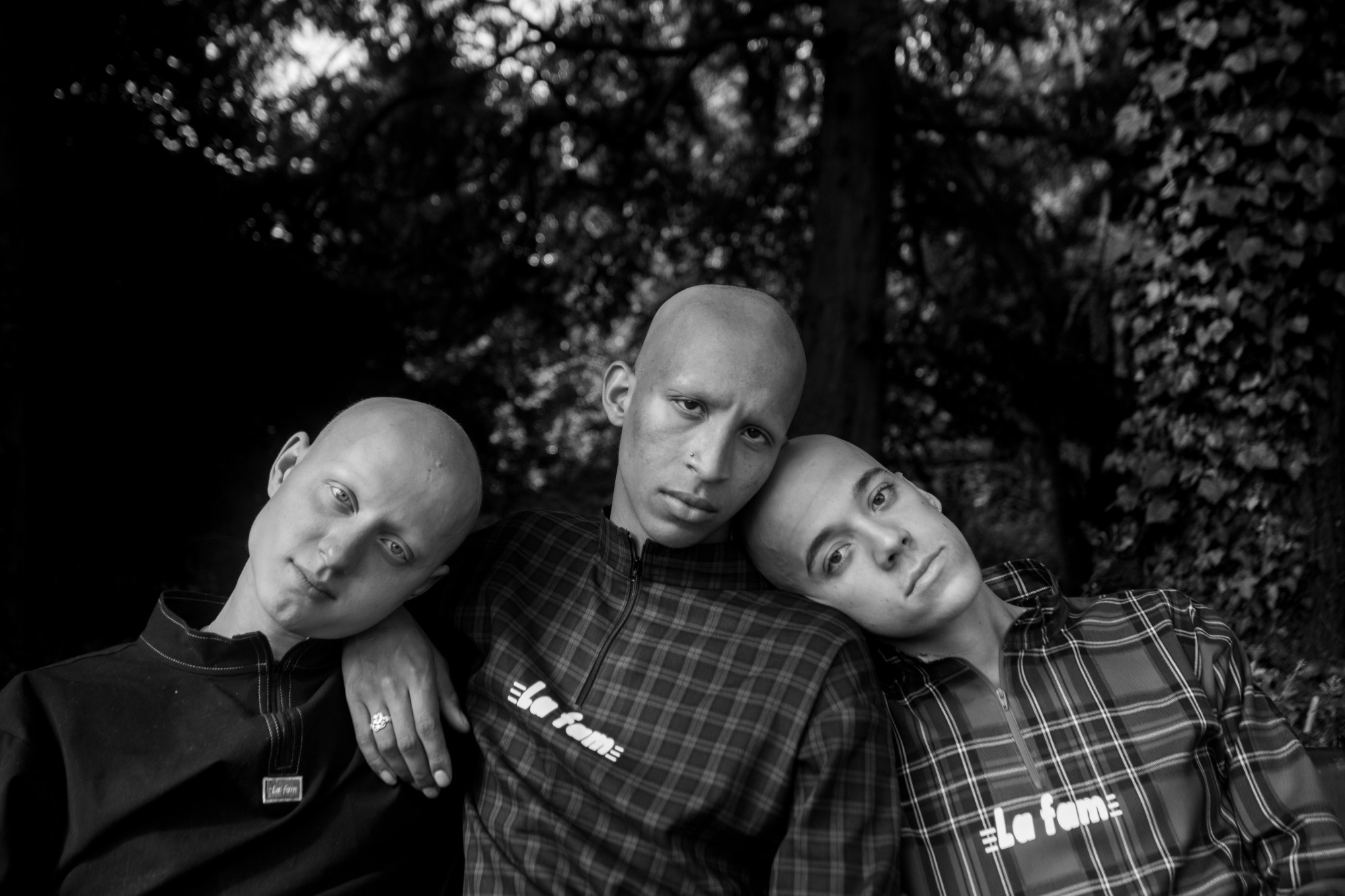This article originally appeared on i-D NL
We often take our hair for granted and our hairstyle as part of our identity. But what if you suddenly lost all of your hair? Alifya Al-Harazi photographed three Dutch boys who have alopecia areata – a rare autoimmune disease in which your immune system attacks parts of your body — healthy hair follicles, in this case. Although the condition does not present any other health risks, losing your hair can damage your self-esteem.
Alifya spoke to the three young men after shooting the images. She asked them about their view on beauty, and how they reached self-acceptance.
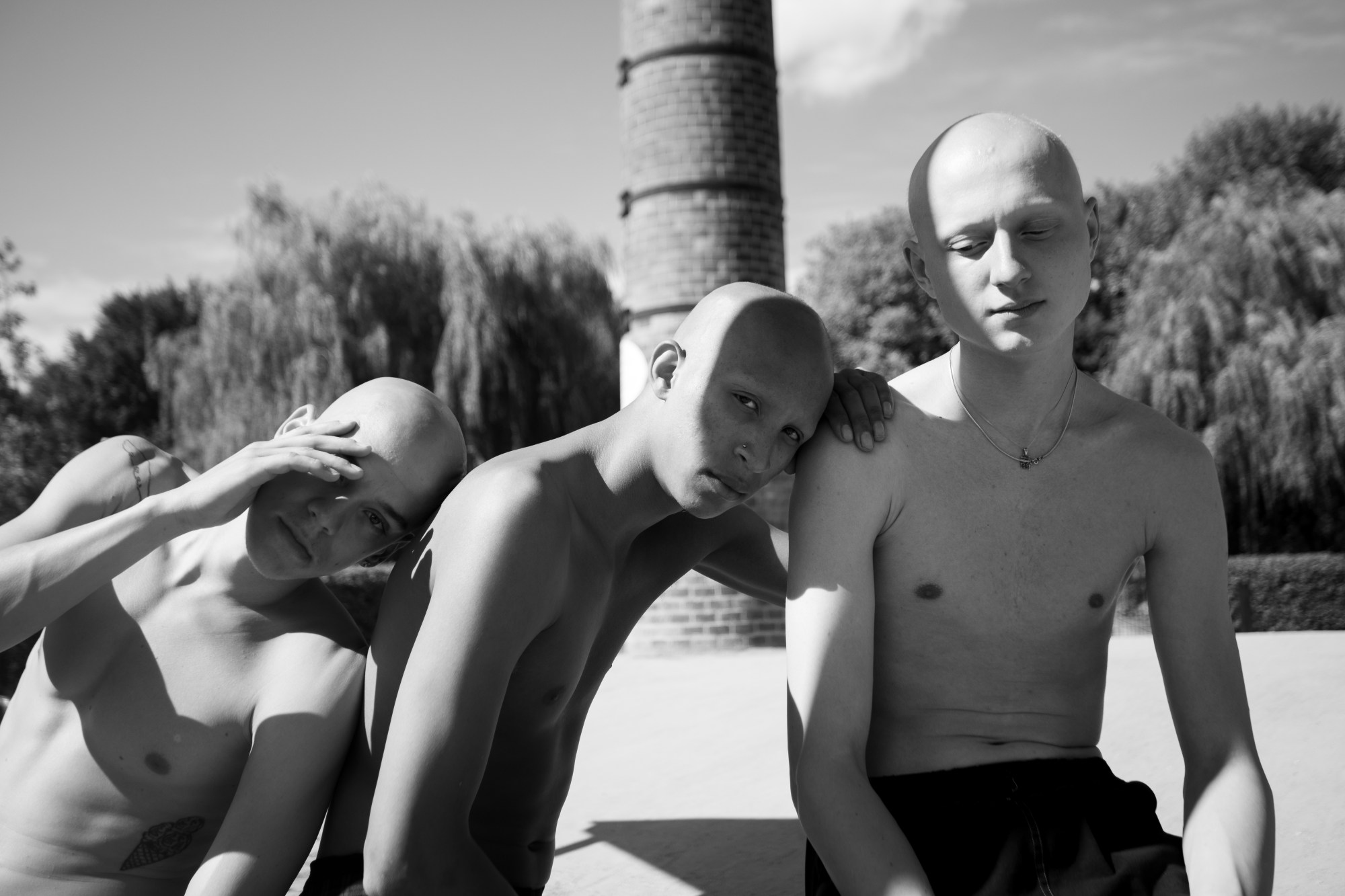
Reilly Do Rosario
“When I think of beauty, I don’t immediately think of appearance. For me it’s more about personality traits. If someone is loving, faithful, and caring, that makes them really beautiful, regardless of how they look.
I have had alopecia since I was four, and it use to always bother me. Children can be merciless at that age. They laughed at me and I was the recipient of cutting remarks. Which is why I always wore a hat growing up. I was afraid to take it off among other children — it made me feel like I was all alone, excluded from all the others. I wouldn’t let anyone notice that it hurt me so deeply, but now I embrace those feelings more easily. I still wear hats and caps to hide it, so I haven’t fully accepted my condition. But I’ve come a long way and now feel much more confident talking about it. I am mostly at peace with it.
I know that many people struggle with their self-image. To them I would like to say: accept who you are, life is meant to be enjoyed. Why would you let other people’s opinions guide your life? No matter how you look: Accepting yourself, makes you attractive.”
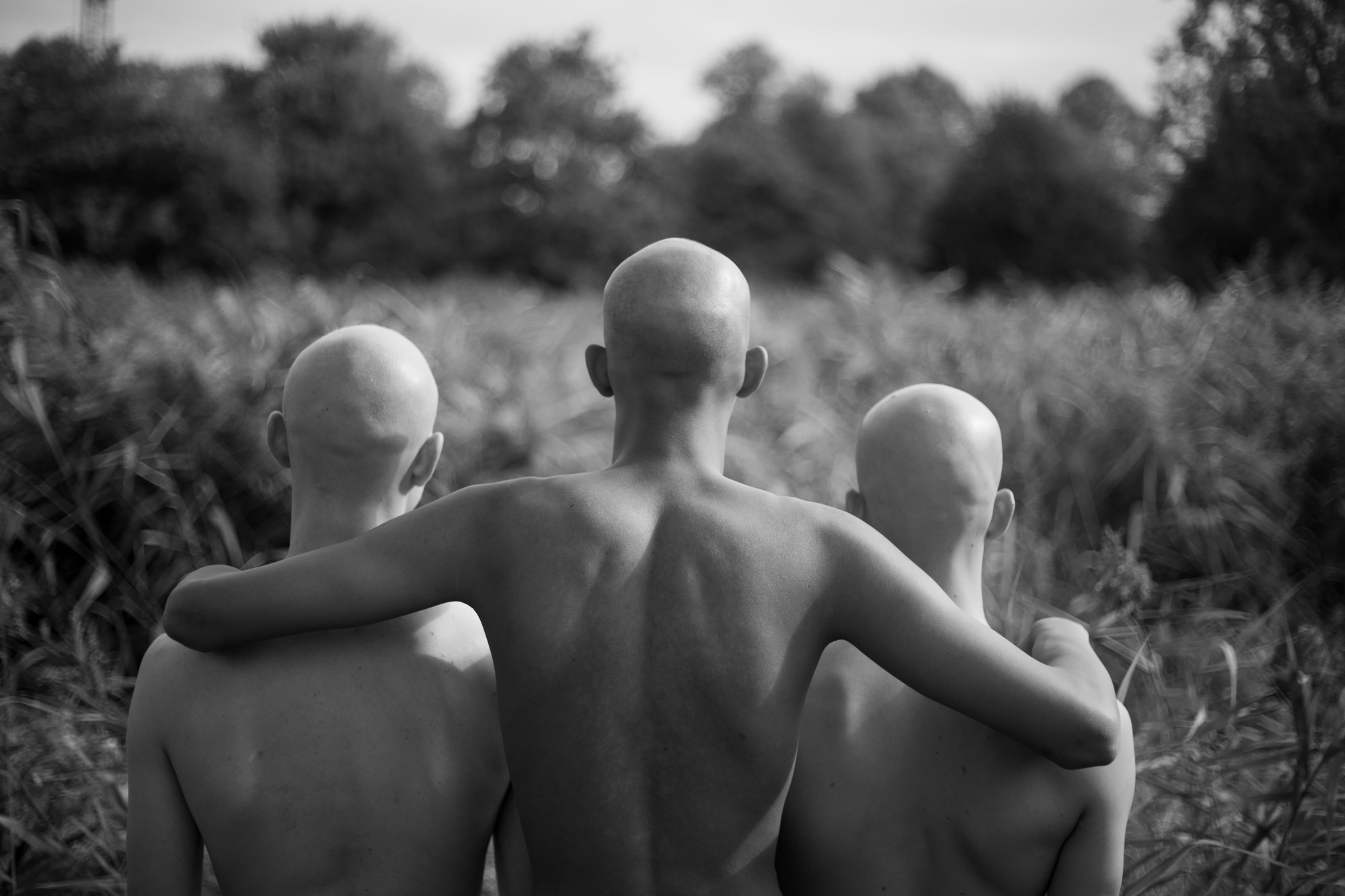
Renze van Jaarsveld
“My hair started falling out when I was 10 and it took a few years before I fully accepted it. The first two years were the hardest — I was still very self-conscious about it. But after a while, I largely stopped noticing it. I got a lot of support from my friends and family: they all said it looked cool, which really helped me. Of course, sometimes I looked in the mirror and realized that I looked different from everyone else. That could be painful. Like many other guys with alopecia, I’ve tried to hide my baldness under a cap. When you are thirteen years old, wearing a cap doesn’t make you stand out so much: so many people wear a cap at that age. But once you get older, and certainly if you pursue a career in fashion, you don’t want to wear headgear every day. The point at which I achieved full self-acceptance was when I decided to stop wearing caps.
At times, it’s still difficult. In winter my head gets cold quickly and in summer I have to be careful not to get sunburnt. My eyes are sensitive, because I do not have eyelashes that block dust particles. And some people think that I have some type of cancer and treat me with pity – that is a strange feeling.
Finding self-acceptance is the hardest part, but it’s possible. Eventually you’ll realize that imperfections don’t matter much. I run the clothing brand La Fam with my sister, and when I search models for our photo shoots I never choose women who look a certain way. I am much more interested in the shy girl or the rascal, because these people are different and do things in their own way. The most important advice I can give people is to not be afraid of their imperfections. Now more than ever, imperfections are celebrated. And a little bit of self-mockery never hurt anybody.”
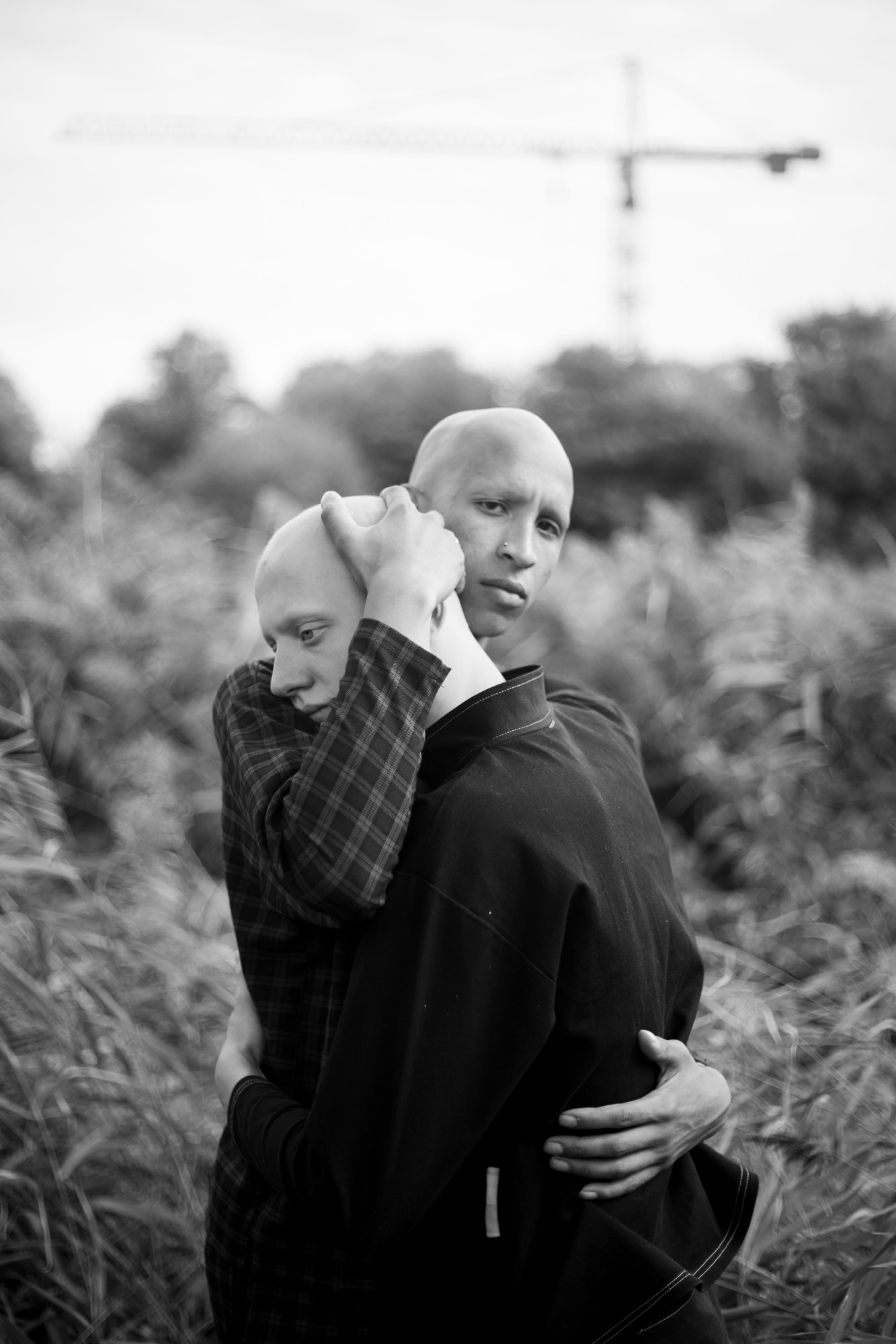
Daan Koens
“I only learned to accept my condition when I was twenty-one. At one point I just decided to stop wearing caps. Everyone reacted positively, which made it easier for me to accept myself. Frankly, I am now struggling a lot less.
The struggle I experienced in the past mainly came from my own fears; I was worried that I would never find a girlfriend, or that I would never get rid of my insecurity. These thoughts turned out to be wrong. If I had to give any advice to others with the same condition, it would be to not be a whiny bitch about it. Why would you worry what other people think of you?
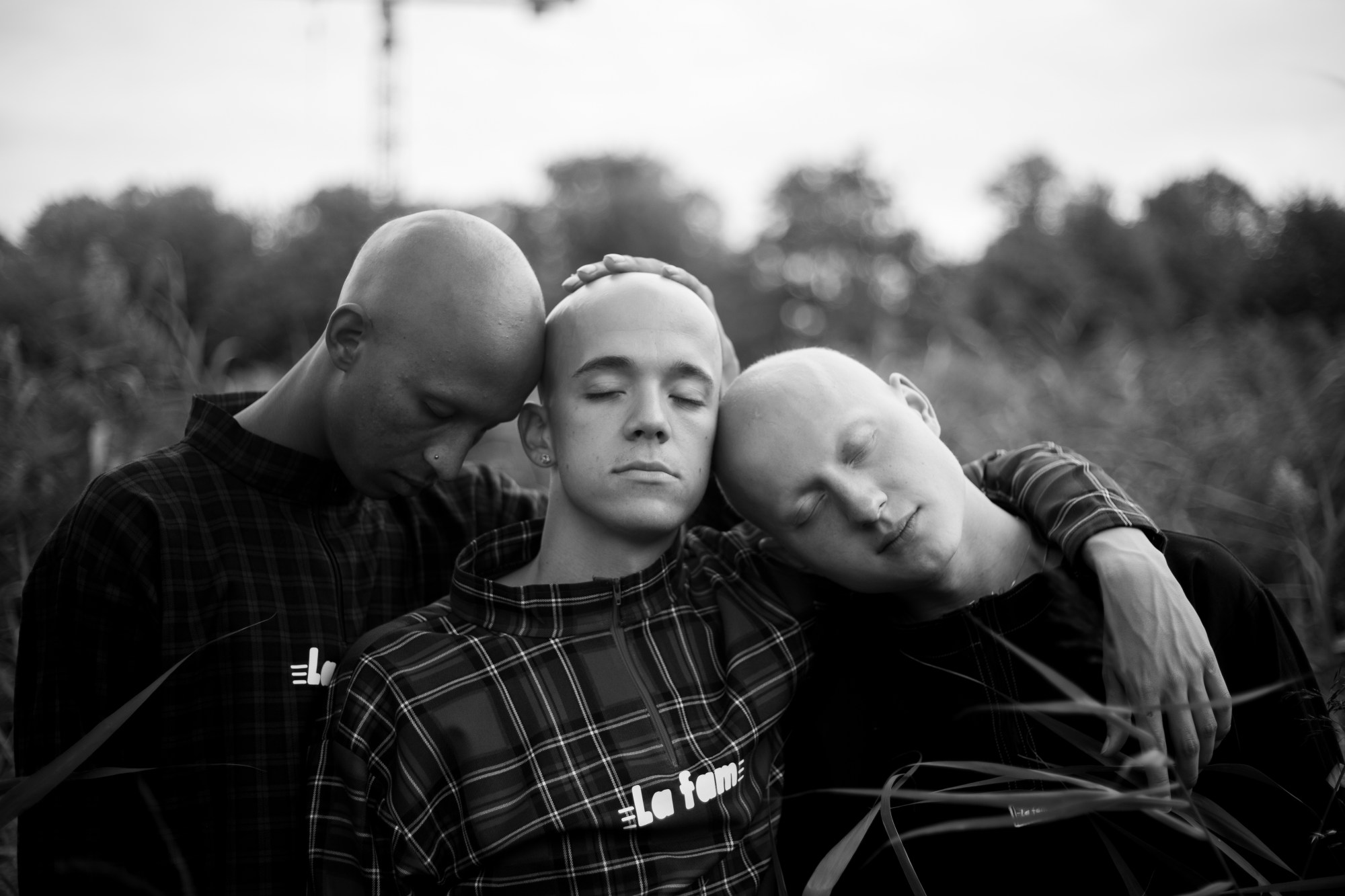
Credits
Photography and Interviews: Alifya Al-Harazi
Clothing: La Fam
